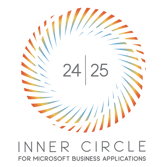During the Microsoft Dynamics 365 Pharma & Life Sciences Inspiration Day, we had a full program of inspiration. One of the speakers was Henrik Walther Madsen, director at Epista Life Science. For this article, we took the highlights of his presentation "Always Compliant ERP with Dynamics 365." Curious? Then continue to read below!
So ChatGPT, let’s hear your thoughts
The presentation kicks off by asking a question to ChatGPT: "How are good IT practices and computer software validation related?" The answer? Good IT practices provide a framework for building and maintaining robust, reliable, and compliant computer systems. Software validation is a specific set of activities within this framework that ensures the software applications meet predefined requirements and comply with regulatory standards.
Henrik: "I actually really like the answer that ChatGPT gave us. For Epista, it’s a very useful platform. It allows us to move focus from manual tasks, such as writing a test script. Who likes to write test scripts? Typically, not a lot of people. Secondly, ChatGPT writes in a much clearer and more structured way than human beings often do. I think it can help us to do good quality control - something that we all need and all want."
The Real Difference of Working in the Cloud
Besides artificial intelligence, working in the cloud remains a big topic.
Henrik: "So what is the real difference in the cloud? First of all, you have to deal with the 'forced updates' that are out of your hands. Parts of the responsibility are outsourced; a lot of the operations are the responsibility of Microsoft. Furthermore, we have to deal with a number of changes at high speed when the demand for efficiency is growing. I would argue that we have been lagging behind other industries forever. Also, from a QA perspective, we have to realize that the world is moving."
So let’s zoom into those elements one by one:
- Forced updates
We want to be able to support our business with good functionality and take advantage of all the technology available. Don’t look at regulation as a bad thing, but as something that actually supports us. Sometimes it can move slowly, but a lot of things have been improving, for example, computer software evaluation and computer software assurance. One piece of advice here: don’t document for the sake of documenting; it’s not improving quality.
- Speed and efficiency of change
The number of people and companies involved in a simple change is huge. The real work can be simple, but it has to run through all departments (Microsoft, business, IT) several times. This has nothing to do with the application; it's just operating. We, for example, like to use DevOps for this, as it can combine most of the tools that we use. It’s not like we can use this solution for everything, but it includes a lot of things that we can benefit from.
- Outsourced responsibility
The outsourced responsibility works like a gear system. There is so much information out there. You need to internalize that and see how you are going to act upon it. That’s what we do with the cloud control maker. Obviously, it lands in operation, since everything is about operation. I know that by now!
When we talk about the Project Quality Handbooks, I would really ask you to consider the following: how do you internalize all the good practices that have already been built and developed? Think of documentation, business processes, and all other things. And then everything comes together in what we call the Operational Handbook.
Conclusions and recommendations
So, which messages should you take with you from this presentation?
- Include QA early, otherwise they are not able to support you in operations afterwards.
- Another thing that you have to include early are design operational procedures.
- Work with a system where you know how the documentation and testing works, because you will need to revisit your configurations. Azure DevOps is preferred for D365: it integrates well and is used by a lot of vendors.
- Revisit regulation and guidance on a regular basis.
- Having a solid change and release management system is key: if you don’t have it you will be late to the party, or work inefficiently.
- Consider organizational change management and training.

.jpg?width=56&height=56&name=download%20(2).jpg)



